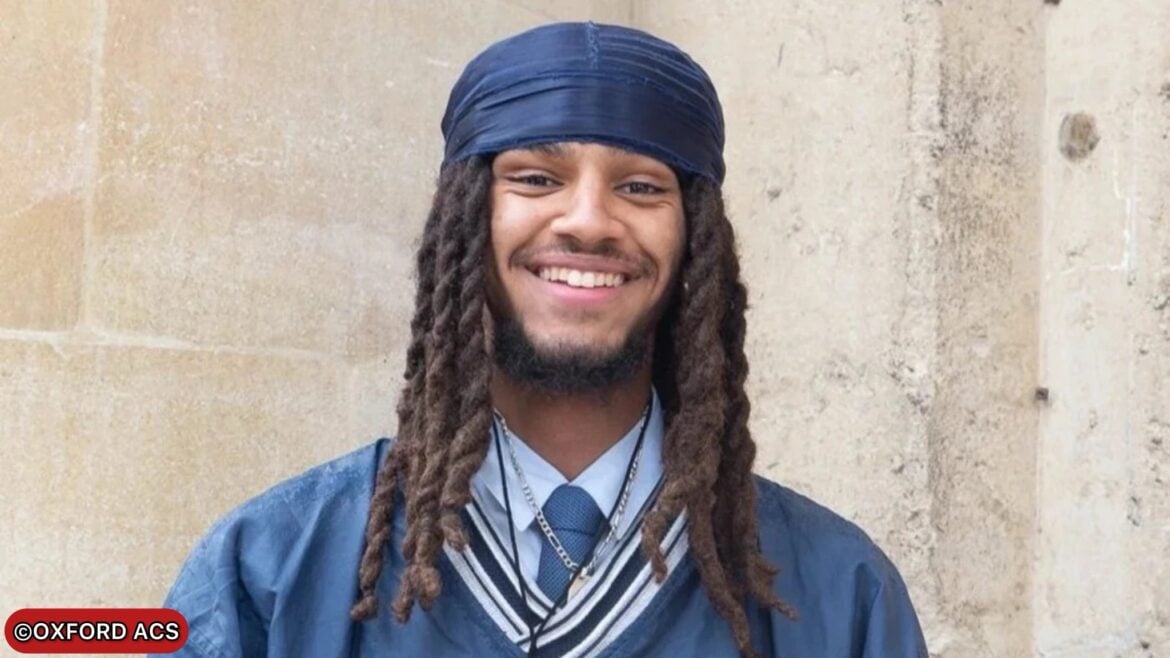A representative of George Abaraonye has claimed there was an active attempt to rig the no-confidence vote process that removed the former Oxford Union president-elect from office.
University of Oxford graduate Oliver Jones-Lyons says union membership cards used to validate the identity of voters had been blatantly forged during the controversial ballot earlier this week.
Mr Abaraonye, who became president-elect of the historic debating society earlier this year, lost his confidence vote by 1,228 votes to 501. However, serious questions have now been raised about the integrity of the electoral process.
Mr Jones-Lyons said he had personally inspected approximately 60 ballots as part of the voting process and saw at least six which had been doctored, including by using Tippex to change the name on the card.
The psychology and philosophy graduate, who represented Mr Abaraonye during the voting process, told GB News that some of the membership cards were just blatantly forged. He described a series of membership cards that all followed the same pattern, with printed names covered by text written over them.
He explained that someone had used Tippex to obscure whatever was originally on the cards before writing over the name they were purporting to be. The images were also suspicious, with 3D imprinted photographs clearly printed over the original cards.
The 22-year-old, who has been involved with the Oxford Union for around four years, said when he inspected the suspicious ballots, at least six fit the same pattern with identical structure. They were only admitted because one of the representatives said they were pretty sure the union had produced membership cards like that once.
Mr Jones-Lyons said there had been a number of theories as to why the allegedly forged membership cards were there. Some theories related to people on disciplinary lists, with concerns this might be to cast doubt on the integrity of those who would hear cases relating to the poll.
However, he said that theory was probably far-fetched, noting that all the suspicious cards were cast the same way, voting yes to the question of whether Mr Abaraonye should be removed as an officer of the society.
Mr Jones-Lyons said whilst he did not know definitively if this constituted an attempt to rig the vote, there was an active attempt to rig it through the use of proxy votes. He claimed proxy voting had been very clearly motivated with the intention of being used by one side, not the other.
He stressed that proxy voting had never been done before at the Oxford Union. The last time something similar occurred was online voting during Covid, when concerns were raised that 500 votes came from just two IP addresses.
In this election, Mr Jones-Lyons revealed, one individual cast 130 proxy ballots. He stated there is something not smelling right about the whole process, describing it as a total mess that was completely unnecessary.
He criticised the rushed nature of the proceedings, saying it was patently wrong to go through a process that has never been tried or tested with only 24 hours to prepare. The lack of preparation time raised fundamental questions about procedural fairness.
Mr Jones-Lyons described questionable methodology used to verify Oxford Union memberships. He said representatives were looking at names displayed on the walls in the building to check if voters appeared, noting that even Yasser Arafat appears on the walls despite nobody reasonably believing him to be a current member.
He told People’s Channel there was some really quite concerning methodology being used to essentially validate yes votes for the no-confidence motion in George Abaraonye.
However, an Oxford Union source strongly disputed the allegations, saying for people to undermine the idea of proxy votes was ridiculous. They told GB News proxy voting had been the precedent set by a previous no-confidence vote and is used due to the short notice between announcement and polling.
The source explained a no-confidence vote requires 150 signatures to be triggered and voting follows just four days later, leaving little time for members to travel to Oxford and vote in person. They defended proxy voting as a practical necessity given the tight timeframe.
They dismissed the claims as part of a long campaign to overturn every single part of the process, including allegations about fake identification cards. The source stated that people who had worked on parliamentary elections in the UK had told them Oxford Union elections were safer than general elections.
The no-confidence vote was sparked following comments Mr Abaraonye made in relation to the shooting of Conservative activist and Donald Trump ally Charlie Kirk at Utah Valley University in September. Leaked messages showed the 20-year-old writing “Charlie Kirk got shot, let’s f**king go.”
A separate message read “Charlie Kirk got shot loool”, an elongated version of the laugh-out-loud acronym. Mr Jones-Lyons admitted the messages were inappropriate and said the former president-elect should have known better.
In a statement last month, the union condemned Mr Abaraonye’s remarks and said complaints filed against him had been forwarded for disciplinary proceedings. The comments proved sufficiently serious to trigger the no-confidence process.
A second no-confidence vote has been held this week against the President of the union, Moosa Harraj. However, the motion of no confidence failed, meaning he remains in office.
The Oxford Union, founded in 1823, stands as one of the world’s most prestigious debating societies. Its elections and internal politics have long attracted controversy, with positions highly sought after by ambitious students.
The allegations of vote rigging and procedural irregularities threaten to undermine confidence in the institution’s democratic processes. Whether formal investigations will be launched into the claims remains unclear.
Follow for more updates on Britannia Daily



